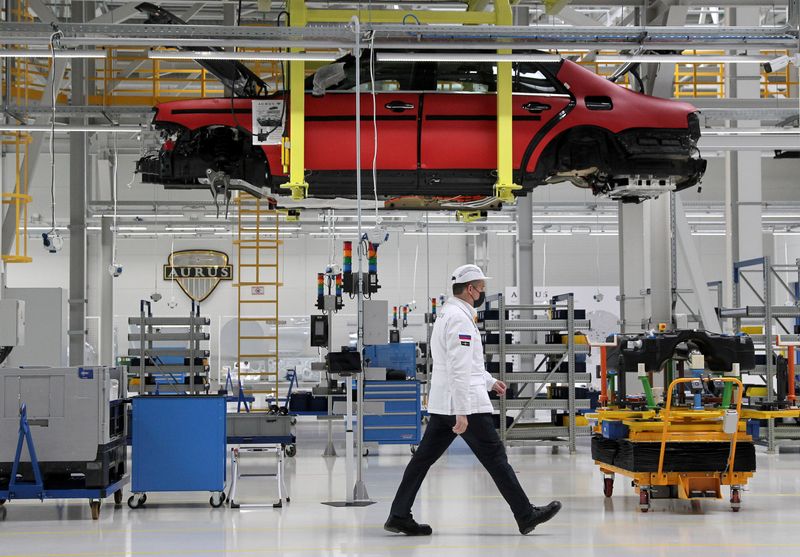
MOSCOW (Reuters) – Russia's manufacturing sector continued to expand in December, but at a slower pace than the previous month, with inflationary pressures remaining high and business confidence weak, Standard & Poor's Global said on Friday.
The Purchasing Managers' Index (PMI) for Russian manufacturing fell to 50.8 in December from 51.3 in November, indicating a marginal improvement in the health of the sector. A PMI reading above 50 indicates growth, while a reading below 50 indicates contraction.
New orders saw a slight increase, supported by continued customer demand, but the growth rate was below the long-term average.
Export orders rose for the fifth straight month, driven by increased trade with neighboring countries, although the pace of expansion was the weakest since August.
Despite the growth in orders, production expansion was modest, with companies citing weak demand and material shortages.
The report indicated that “the increase in production was linked to the continued rise in inflows of new orders.”
Inflationary pressures remained high, with input costs rising due to rising prices of basic materials and unfavorable movements in exchange rates. Product prices also rose, although inflation fell to its lowest level in three months.
Employment levels fell for the second month in a row, reflecting weak demand and adequate capacity. Companies reduced workforce numbers slightly, with backlogs falling only slightly.

Manufacturers have increased purchases of inputs to rebuild inventories and mitigate future price rises, but supply chain issues, especially in rail transport, have led to longer delivery times.
Overall, Russian manufacturers remained optimistic about future production, although confidence declined due to concerns about rising prices and material shortages.






